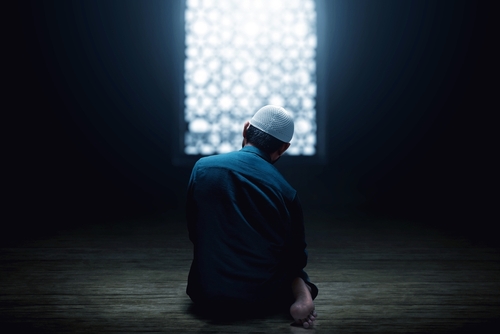The Vatican’s quiet decision to provide a Muslim prayer room within its historic library has ignited new concerns among those who see Western traditions and religious heritage increasingly under pressure from globalist and multicultural agendas.
Vatican Library Approves Muslim Prayer Room, Raising Questions
The Vatican Library, one of the oldest and most revered institutions of the Catholic faith, has quietly approved a request from Muslim scholars for a dedicated prayer room within its walls. Father Giacomo Cardinali, the Vice Prefect of the Vatican Library, confirmed in a recent interview that the institution now permits Muslim academics to practice their faith onsite, stating, “Some Muslim scholars asked us for a room with a prayer rug, and we gave it to them.” This move marks a significant development in the Vatican’s approach to interfaith accommodation, particularly at a time when many Westerners are concerned about preserving the cultural and religious identity of their historic institutions.
Vatican II Theology in Action: Vatican Library Provides Prayer Room for Muslim Visitors – https://t.co/JYLg7FB0mm You can't make this stuff up… pic.twitter.com/oGPrsXQLbl
— Novus Ordo Watch (@NovusOrdoWatch) October 8, 2025
The Vatican Library, established in 1475, has long held a reputation for collecting theological texts and artifacts from around the world. Today, it houses approximately 80,000 manuscripts, 50,000 archival items, countless engravings, coins, and nearly two million printed books. Cardinali highlighted the library’s universal scope, listing collections from Arabic, Jewish, Ethiopian, and even rare Japanese archives. Despite its historical openness to diverse scholarship, the recent decision to provide a specific prayer space for Muslims on Vatican grounds has drawn scrutiny from those concerned about the erosion of Western religious traditions.
Concerns Over Tradition and Religious Identity
For many conservatives and defenders of Western heritage, the quiet granting of a Muslim prayer room in the Vatican is emblematic of a wider trend: the incremental accommodation of non-Christian practices in the heart of historically Christian institutions. Critics argue that such policies not only dilute the unique identity and traditions of these institutions but also set a precedent for further erosions of their foundational values. The Vatican’s willingness to meet extraordinary requests — including those considered “absurd” by library staff — suggests a broader openness that some see as undermining centuries of carefully preserved heritage.
The concern is not rooted in opposition to religious freedom, but rather in the perceived imbalance: while Christian traditions are often restricted or marginalized in public spaces throughout the West, iconic Christian sites now appear increasingly willing to accommodate other faiths, sometimes at the expense of their own distinctiveness. This development resonates with broader frustrations among conservatives who have long warned about the dangers of unchecked multiculturalism, globalism, and the watering down of foundational Western principles.
Desecration of Sacred Spaces Amplifies Tensions
The debate over religious accommodation inside the Vatican was further inflamed by a recent act of desecration within St. Peter’s Basilica. Just last week, a man climbed onto the sacred Altar of Confession during a 9 a.m. mass and proceeded to urinate in front of horrified worshippers and tourists. Security struggled to contain the situation, and Pope Leo XIV was reportedly “shocked” by the blatant disrespect shown to one of Catholicism’s most sacred spaces. The Vatican has not yet released a formal statement, and questions remain about whether the perpetrator will face charges. This incident has fueled concerns that increased openness and diminished reverence for tradition invite further disrespect and endanger the sanctity of Western religious sites.
Vatican to open Muslim Prayer room to accommodate Muslim scholars visiting the Vatican Apostolic Library.
“Some Muslim scholars have asked us for a room with a carpet for praying and we have given it to them.” – Vice Prefect Fr Giacomo Cardinali.
Source: Catholic Herald pic.twitter.com/xfg45ch08w
— Oli London (@OliLondonTV) October 15, 2025
Many observers see a pattern: as institutions like the Vatican prioritize inclusivity and accommodation, they may unintentionally signal that long-standing traditions are negotiable or less deserving of respect. This perception, whether fair or not, is at the heart of a growing backlash from those who believe that the West’s unique heritage must be actively defended against both subtle and overt forms of erosion.
Balancing Openness with Upholding Tradition
The Vatican’s leadership, by emphasizing the library’s role as a “universal” institution, may view the decision to allow a Muslim prayer room as a gesture of hospitality and academic inclusiveness. However, critics argue that even well-intentioned accommodations can have unintended consequences, especially when they occur within institutions that serve as global symbols of Christian identity and tradition. The tension between openness and preservation is not unique to the Vatican; it reflects a broader challenge facing many Western societies as they grapple with questions of identity, heritage, and the limits of multiculturalism.
As debates continue, many conservatives urge vigilance in defending the values and traditions that have defined Western civilization for centuries. For them, the story of the Vatican’s new prayer room is a cautionary tale — a reminder that even the most iconic institutions are not immune to the pressures of globalism and the slow erosion of foundational beliefs.
Sources:
Pope Leo XIV ‘shocked’ after man urinates on St. Peter’s Basilica altar
Vatican ‘grants request for Muslim prayer room’

